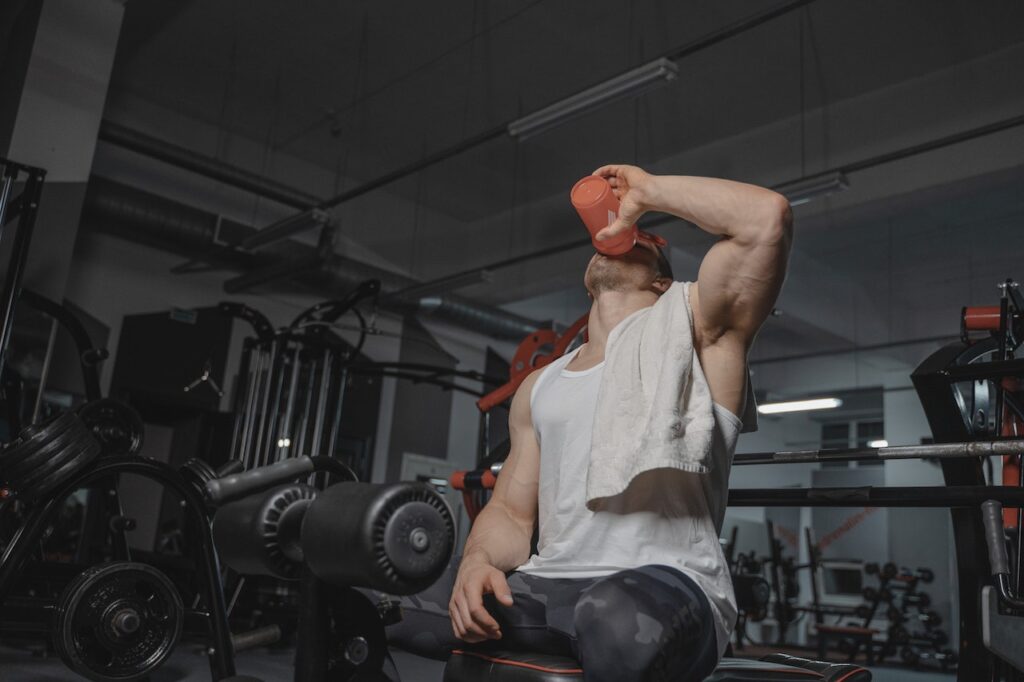Understanding Hydration
Water makes up about 60% of the human body, playing a crucial role in various bodily functions. It aids digestion, regulates body temperature, lubricates joints, transports nutrients, and facilitates several other metabolic processes. When our water intake doesn’t match our output, we can become dehydrated, impacting our body’s ability to function optimally.
Dehydration can lead to several adverse effects on physical performance and health. Even mild dehydration can cause fatigue, muscle cramps, dizziness, and impaired concentration. Severe dehydration can have more serious consequences, including heat stroke, kidney damage, and in extreme cases, loss of consciousness.
Read our article to choose the right home gym equipment for your needs.

Hydration and Exercise Performance
Maintaining proper hydration is key to optimizing your exercise performance. It can enhance endurance, reduce fatigue, improve recovery, and even boost motivation. Conversely, dehydration can affect muscle strength, cardio performance, and flexibility. It can lead to muscle cramps, reduce your stamina, slow down your reaction time, and impact your overall performance.
Research indicates that losing even 2% of your body’s water content can significantly impair physical performance. The higher the intensity of your workout, the more crucial hydration becomes. As you exercise, your body sweats to cool down, losing not just water but also essential electrolytes. Replacing these lost fluids and electrolytes is crucial for maintaining peak performance.
Pre-Workout Hydration
Starting your workout well-hydrated is essential to maintaining energy levels and performance throughout your routine. It’s generally recommended to drink 16-20 ounces of water two to three hours before your workout, then another 8 ounces 20-30 minutes before starting your exercise.
Listen to your body and adjust accordingly. A useful indicator of hydration is urine color – aim for a pale yellow color, often likened to the color of lemonade. Dark yellow or amber-colored urine could be a sign of dehydration.
Hydrating During Your Home Workout
Staying hydrated during your home workout is crucial. A common recommendation is to consume 7-10 ounces of fluid every 10-20 minutes during exercise, but this can vary based on your sweat rate, the exercise intensity, and the environmental conditions.
Don’t wait until you’re thirsty to drink water; thirst is an indicator that you’re already becoming dehydrated. If you’re performing an intense cardio or strength training session that lasts longer than an hour, consider including a sports drink that can replenish the electrolytes lost through sweat.
Struggling with consistency? Read our tips on staying motivated.
Post-Workout Rehydration
Rehydrating after a workout is equally important as hydrating before and during. It helps replenish any fluid loss during the exercise and aids in recovery. For effective post-workout rehydration, aim to drink at least 16-20 ounces of fluid for every pound of body weight lost during the workout.
Including electrolytes, particularly sodium and potassium, in your post-workout hydration routine can help speed up the recovery process by replacing what you lost through sweat. If your workout was particularly strenuous or long, consider rehydrating with a sports drink or coconut water, which naturally contains these vital electrolytes.
Limited space? Check out our clever space-saving ideas for your home gym.
Signs You Might Not Be Hydrating Enough
It’s important to recognize the signs that you might not be hydrating enough. Common signs of dehydration during and after workouts include fatigue, dizziness, increased body temperature, rapid heartbeat, dry mouth, excessive thirst, and decreased urine output or dark yellow urine.
More severe symptoms might include confusion, fainting, or lack of sweat even after intense exercise.
Conclusion
Hydration plays a pivotal role in your home workout routine. From enhancing performance to aiding recovery, maintaining optimal hydration can significantly impact your fitness journey’s success.
Embrace the habit of hydrating properly and make it an integral part of your fitness regimen. After all, achieving your fitness goals is as much about proper hydration as it is about consistency in workouts. Here’s to better hydration and better workouts. Happy exercising!
